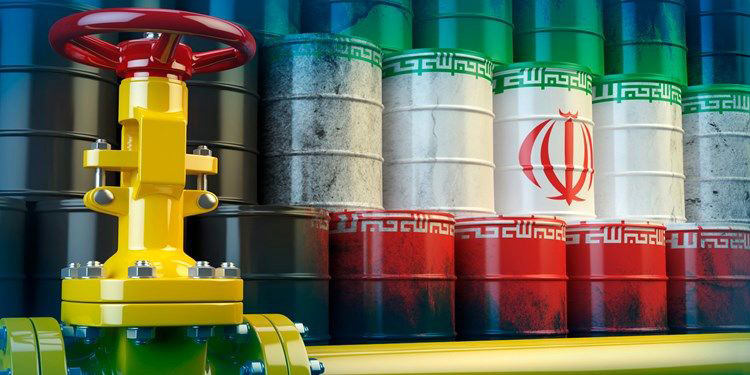Petroleum upstream sector in Iran – Part 1
In this comprehensive article, we will delve into the Petroleum contracts in the upstream sector, dividing our analysis into two distinct parts. In the first part, we will explore the nature of these contracts, examining whether they can be classified as treaties or international contracts. Additionally, we will investigate the competent institutions responsible for concluding these contracts and explore the feasibility of entering into agreements with foreign entities.
The nature of the upstream contracts
If petroleum contracts in the upstream section are entered into by the government or the Petroleum Ministry with another government or foreign governmental agency, they will be considered international treaties, unless the parties explicitly state that they are not governed by international law and instead governed by domestic laws. On the other hand, if the contract is between the government or the Petroleum Ministry and foreign private or public companies, it will be classified as an international contract rather than an international treaty. Similarly, petroleum contracts in the upstream section that are concluded between the National Iranian Oil Company (NIOC) and foreign public or private companies, or with a foreign governmental organization, are also considered international contracts.
Iranian entities, which are responsible for concluding petroleum contracts
In Iran, the entities responsible for finalizing petroleum contracts in the upstream sector are the Petroleum Ministry and the National Iranian Oil Company (NIOC). These competent authorities hold the authority to negotiate and conclude agreements related to petroleum exploration, production, and development activities. Prior to the Islamic revolution, the ownership of petroleum resources in Iran was vested in the government. This ownership structure was established by the Iranian Petroleum Law of 1974, specifically outlined in Article 2 and Article 3. Under this law, the National Iranian Petroleum Company (NIOC) held the rights to these resources. The primary responsibilities of NIOC were twofold.
Firstly, it exercised the right of ownership on behalf of the Iranian nation over all aspects related to petroleum resources, including exploration, development, production, exploitation, and distribution. This meant that NIOC had the authority to oversee and manage all activities associated with petroleum resources within Iran’s borders.
Secondly, NIOC was responsible for negotiating contracts with both Iranian and foreign individuals or entities for exploratory and developmental operations. These negotiations aimed to establish contractual agreements that would enable the efficient and effective utilization of Iran’s petroleum resources. By engaging in these negotiations, NIOC sought to attract domestic and international investment in the exploration and development of oil fields.
Duties and Powers of the Ministry of Oil
Following the Islamic revolution, the establishment of the Oil Ministry was authorized by the Revolution Council. This ministry was then formed to oversee various tasks related to the petroleum industry. Subsequently, public tasks as a sovereign state pertaining to the petroleum industry were assigned to the Petroleum Ministry and its relevant deputies. On the other hand, technical responsibilities in the upstream section were designated to the National Iranian Oil Company (NIOC) and its affiliated firms.
According to the supplementary bill on the law of establishing the Petroleum Ministry, Article 1 outlines the various public tasks assigned to the ministry. These tasks encompass a range of responsibilities such as safeguarding petroleum reservoirs, overseeing petroleum affairs, formulating policies, and developing plans for the petroleum sector. Additionally, the ministry is also responsible for designing the organizational charter for the management and operation of petroleum-related activities.
The responsibility for administrative and operational tasks related to petroleum contracts, particularly in their conclusion, should be undertaken by the National Iranian Oil Company (NIOC). This is because, with the approval of the Petroleum Ministry Law, only article 3(1) of the petroleum law from 1974 was declared null and void, while article 3(2) remained in effect. As a result, the main procedure followed by the Petroleum Ministry for assigning petroleum contracts is based on this legal framework. However, in 1987, with the approval of a new Petroleum Law, the Petroleum Ministry was also granted the authority to conclude petroleum contracts.
Foreign investors that are allowed to conclude upstream contracts
In compliance with both pre and post Islamic revolution laws, individuals within the country are permitted to enter into contractual agreements. Prior to the Islamic revolution, as stated in Article 3 of the Petroleum Law (1974), foreigners were only allowed to participate in the petroleum upstream sector as contractors. However, with the enactment of Foreign Investment Promotion and Protection Act in 2002, the restrictions on foreign investments were lifted, creating an opportunity for foreign investment through contractual methods that necessitated investments. As per Article 4 of the law on encouraging and supporting foreign investment, investments by foreign governments can be made with the approval of the Parliament.
To read the second part of the article on the petroleum upstream sector in Iran, refer to the link below.
Petroleum upstream sector in Iran – Part 2
You can discuss your questions regarding upstream petroleum contract with our experts in Iran Best Lawyer.





